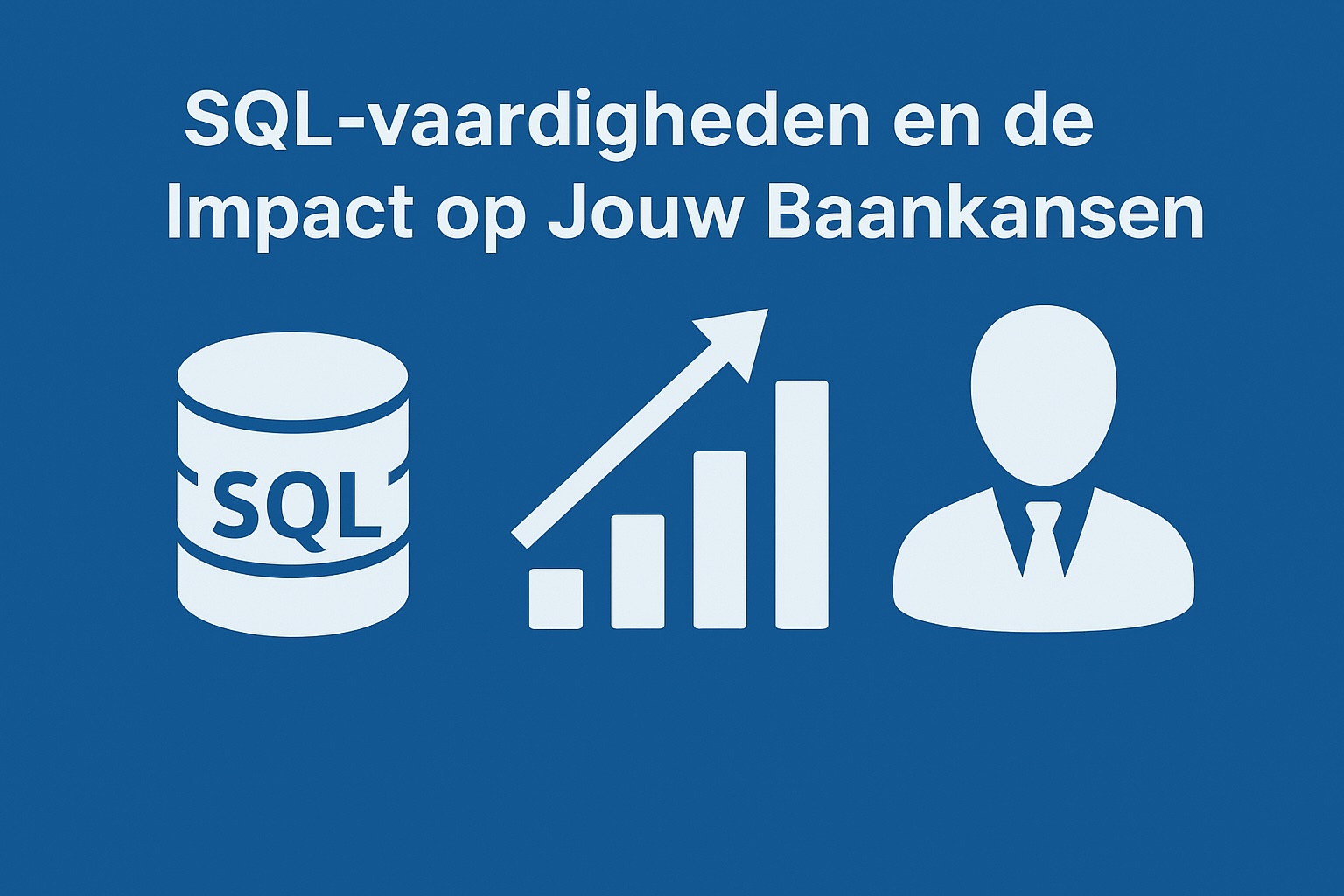What is SQL
What is SQL?
To begin with, it’s important to understand what SQL is and how it works. SQL, or Structured Query Language, is a standardized programming language specifically designed for managing and manipulating relational databases.
Relational databases are systems that store data in tables. Each table consists of rows and columns: each row represents a unique record, and each column contains specific attributes or characteristics of that record. Tables within a database can be linked through relationships, making it possible to efficiently manage and analyze complex datasets.
The main functions of SQL
SQL is a powerful language that supports several core functions:
- SELECT: Retrieve data from one or more tables.
- INSERT: Add new records to a table.
- UPDATE: Modify existing data within a table.
- DELETE: Remove records from a table.
- DDL (Data Definition Language): Design and modify the structure of the database, for example by creating, altering, or deleting tables.
- DCL (Data Control Language): Manage access rights, such as granting or revoking permissions.
- TCL (Transaction Control Language): Manage transactions to ensure the reliability and consistency of the database.
Why SQL is so important
SQL is the standard language for data analysis, data engineering, and database management. Thanks to its broad applicability, SQL is used by companies across various sectors, from technology and finance to healthcare and government. Whether you want to perform simple data queries or combine and transform complex datasets, SQL provides a solid foundation.
Moreover, knowledge of SQL is essential for roles such as data analyst, data scientist, business intelligence specialist, and database administrator. Even in marketing, sales, and operational roles, the demand for basic SQL knowledge is steadily increasing.
Modern developments in SQL
In recent years, there have been several important developments around SQL:
- Cloud databases: More and more organizations are using cloud-based databases such as Amazon RDS, Google BigQuery, and Microsoft Azure SQL Database.
- Big Data integrations: SQL-like query languages are now also being applied to large volumes of unstructured data through platforms like Hadoop and Spark SQL.
- Extensions and optimizations: Modern SQL variants support advanced features such as JSON data handling, full-text search, and analytical functions (window functions).
- No-code and low-code solutions: Although visual interfaces are increasingly used to manage databases, SQL remains indispensable behind the scenes for flexibility and customization.
Conclusion
SQL is and will remain a fundamental skill for anyone working with data. Thanks to its versatility, power, and broad applicability, knowledge of SQL is not only useful but increasingly a requirement in today’s job market. Whether you're just starting out or looking to deepen your skills, investing in SQL knowledge opens doors to new opportunities and careers.

Data retrieval for analysis
In the field of Data and Analytics, SQL is still an essential tool for retrieving data for analysis. Despite the rise of new technologies, SQL remains indispensable due to its power, flexibility, and broad applicability. The process of using SQL to extract data from databases is also known as querying. Through SQL queries, analysts and data scientists can quickly and efficiently request specific datasets. For example, retrieving all sales of a particular product within a specific period, generating summaries for dashboards, or preparing data for machine learning models.
Why SQL remains so important for data retrieval
SQL (Structured Query Language) is designed to manage and query large amounts of data in a structured way. Even as organizations increasingly move to cloud solutions and big data platforms, SQL remains the standard language for database interaction. Many modern data warehouses such as Snowflake, Google BigQuery, and Amazon Redshift support SQL-native querying, making knowledge of SQL essential for anyone working with data.
Some advantages of using SQL for data retrieval:
- Fast and direct access to relevant information.
- Flexibility to create complex analyses through composite queries.
- Ability to filter, group, and aggregate large datasets.
- Broad applicability across virtually all relational databases and cloud environments.
Practical example of a simple SQL query
Here’s an example of what a simple query might look like:
SELECT * FROM Sales WHERE Product_ID = 123 AND Sale_Date >= '2023-01-01' AND Sale_Date <= '2023-12-31';
In this query, the SELECT * command indicates that we want to retrieve all columns of the selected records. The FROM Sales command specifies which table the data is being pulled from. The WHERE clause ensures that only records meeting the specified conditions are retrieved, namely a specific Product_ID and a date range between January 1, 2023, and December 31, 2023.
Best practices for retrieving data with SQL
To make the data retrieval process as efficient as possible, it’s important to follow a few best practices:
- Always use specific column names instead of
*to retrieve only the necessary data and improve performance. - Use indexes in the database to speed up searches.
- Avoid excessive nested subqueries to optimize the readability and speed of your code.
- Test your queries with smaller datasets before applying them to large amounts of data.
By handling data retrieval via SQL consciously and carefully, you as a data analyst or data scientist can gain faster insights and contribute to better decision-making within organizations.

Manipulate data
SQL is not only used to retrieve data but also plays a central role in manipulating data within databases. With SQL, you can insert new data, update existing records, and remove unnecessary information. Additionally, SQL offers powerful features for complex data manipulations, such as joining tables, grouping and aggregating data, and advanced sorting across multiple columns. This makes SQL indispensable for anyone working professionally with data. Below you’ll find an overview of common SQL operations.
Inserting New Data
With the INSERT INTO statement, you can add new records to a table. This is often used to record transactions, customer information, or other new data.
INSERT INTO Sales (Product_ID, Sale_Date, Sale_Amount)
VALUES (123, '2025-04-09', 100);Updating Existing Data
The UPDATE statement allows you to modify existing records. This is useful when, for example, prices change, customer data is updated, or incorrect information needs to be corrected.
UPDATE Sales
SET Sale_Amount = 150
WHERE Product_ID = 123 AND Sale_Date = '2025-04-09';Deleting Unnecessary Data
You use the DELETE FROM statement to remove records that are no longer needed. This helps keep the database clean and efficient.
DELETE FROM Sales
WHERE Product_ID = 123 AND Sale_Date = '2025-04-09';
Advanced Data Manipulation in SQL
In addition to simple operations, SQL offers many more advanced possibilities for data manipulation. Some examples include:
- JOIN: Combine data from multiple tables to get a complete view.
- GROUP BY: Group results based on one or more columns, ideal for summaries and reports.
- Aggregate Functions: Use functions like COUNT, AVG, MIN, and MAX to gain insights from your data.
- ORDER BY: Sort data across multiple columns for a structured output.
Why SQL is Essential for Modern Data Analysis
SQL is optimized to efficiently handle large amounts of data, making it an indispensable tool in data analysis, business intelligence, and data-driven decision-making. Thanks to the flexibility and power of SQL, analysts, data scientists, and database administrators can generate accurate, reliable insights that help organizations make better strategic decisions.

Why is SQL so popular?
Why is SQL so popular?
Efficient data manipulation
One of the main reasons why SQL is so popular in the world of data and analytics is its unparalleled efficiency in data manipulation. Unlike many other programming languages that execute instructions line by line, SQL works set-based. This means SQL can process entire datasets at once. As a result, complex queries and multiple data streams can be handled much faster. Especially when dealing with large volumes of data, this approach offers a significant performance advantage, making SQL an essential skill for data analysts, data scientists, and database administrators.

Easy to learn and apply
Another reason why SQL is such a popular choice lies in its simplicity and accessibility. SQL has a clear and logical syntax. Many of the commands, such as SELECT, INSERT, and UPDATE, are based on straightforward English terms, making it easy for beginners to quickly understand what a query does. This makes SQL attractive not only to technical specialists but also to business professionals who want to work with data without extensive programming knowledge. The low entry barrier makes SQL particularly suitable as a first programming language for anyone who wants to harness the power of data.
Universal standard in data environments
SQL also stands out because of its universal nature. It is a standardized language supported by virtually all relational database systems, such as MySQL, PostgreSQL, Oracle, and Microsoft SQL Server. Modern cloud-based data storage and analytics tools like Google BigQuery, Amazon Redshift, and Snowflake also rely on SQL-like syntax. This broad applicability means that SQL knowledge is directly transferable across countless organizations and sectors.
Indispensable in modern data analytics
In today's data-driven world, SQL continues to prove its value. Whether building dashboards, writing reports, or conducting in-depth data analyses, SQL is an indispensable tool. Moreover, the language evolves alongside new technologies such as data lakes and real-time analytics, ensuring that professionals with SQL skills maintain an edge in the job market. In short, SQL remains the backbone of data analysis and data engineering and will continue to play a key role in the future.
Python and R
When SQL Isn't Enough: The Power of Python and R
SQL is a powerful and versatile language for retrieving, editing, and managing structured data. However, SQL also has its limitations. For more complex analyses, in-depth data science projects, or working with unstructured data, it is often necessary to look beyond SQL alone.
Limitations of SQL in Complex Data Projects
Although SQL is excellent for executing queries and editing relational databases, it is less suited for advanced tasks such as:
- Complex statistical analyses
- Developing and training machine learning models
- Building data visualizations beyond standard tables and charts
- Working with unstructured or semi-structured data
Python: Flexibility and Power for Data Analysts and Data Scientists
For many data professionals, Python is the logical complement to SQL. Python offers a vast range of libraries such as Pandas, NumPy, Scikit-learn, and TensorFlow that are ideal for:
- Advanced data analysis
- Machine learning and artificial intelligence
- Automation of data processes
- Data cleaning and preparation
- Interaction with APIs and external data sources
Thanks to Python’s readability and large community, it is an excellent language for both beginners and experienced data scientists.
R: Specialized in Statistics and Data Visualization
R is also a popular choice, especially when statistical analyses and data visualizations are the focus. R excels at:
- Complex statistical calculations
- Building advanced graphs and interactive dashboards
- Data mining and predictive techniques
Thanks to packages such as ggplot2, Shiny, and caret, analysts and researchers can quickly derive deep insights from their data and present them effectively using R.
The Right Combination: SQL, Python, and R
In the modern data world, combining tools is essential. Many data analysts use SQL to retrieve data, Python for data analysis and machine learning, and R for in-depth statistics and visualization. By smartly combining these languages, you can tackle any type of data challenge effectively and efficiently.
Summary
SQL remains indispensable for structured data, but for those who want to go further with advanced analyses and machine learning, languages such as Python and R are essential. By expanding your knowledge with these programming languages, you increase your capabilities as a data professional and can respond flexibly to various data projects.

SQL skills and job opportunities
Why SQL Skills Are Essential for Your Career
In an increasingly data-driven world, mastering SQL (Structured Query Language) is a valuable skill that can significantly boost your career opportunities. SQL is the standard language for querying, managing, and analyzing data in databases, and it is extensively used across various sectors such as technology, finance, healthcare, and marketing.
High-Demand Roles Where SQL Skills Are Crucial
More and more roles are requiring strong SQL skills. Examples include:
- Data Analyst – interprets data to provide business insights.
- Business Intelligence Specialist – develops dashboards and reports for strategic decision-making.
- Data Engineer – builds and optimizes data infrastructures.
- Database Administrator (DBA) – manages and secures critical database systems.
Even in roles such as marketing analyst, financial analyst, and software developer, SQL knowledge is increasingly seen as a must-have.
Benefits of Strong SQL Skills
By improving your SQL skills, you open the door to more career opportunities, a higher salary, and better growth prospects. Employers value professionals who:
- Master the fundamentals of SQL flawlessly.
- Can independently write complex queries.
- Can apply advanced analysis techniques to large datasets.
- Can monitor and optimize data quality.
With strong SQL skills, you demonstrate the ability to extract valuable insights from data — a trait that is invaluable in virtually every modern organization.
The Impact of SQL on Your Career Development
Professionals with good SQL knowledge not only have an advantage when applying for jobs, but they also tend to advance more quickly within organizations. Companies are eager to invest in employees who combine data awareness with technical expertise. Moreover, the demand for SQL-skilled talent continues to rise due to the growth of big data, machine learning, and advanced data analytics within businesses.
Start Strengthening Your SQL Skills Today
Whether you're a beginning data analyst or an experienced marketer aiming to work more data-driven, investing in your SQL knowledge is investing in your future. There are plenty of courses, online trainings, and certifications available that can quickly take your skills to the next level.
Develop your SQL skills and increase your chances in the job market!

Looking for data and analytics specialists
For a small fee, you can easily post your vacancies on our platform and reach our large, relevant network of data and analytics specialists. Applicants will respond directly to you, without third-party involvement.
On DataJobs.nl we connect supply and demand in the data and analytics job market directly—without intermediaries. You won't find any vacancies from recruitment agencies here. Visitors can view all vacancies for free and without an account, and apply directly.
Check out the options for posting vacancies here. Questions? Contact us!




